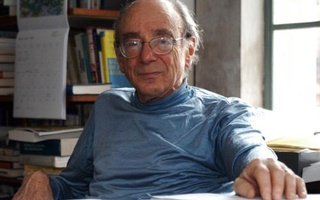A large and enthusiastic audience gathered in Sanders Theatre last evening to hear the Boylston Prize speaking.
Shortly before 8 o'clock A. J. Cumnock, as first marshal, introduced Jacob Schoen who spoke Lippard's "The Signing of the Constitution." The piece itself was somewhat too bom bastic for even an American audience.
Walter Littlefield followed. His rendering of Mark Antony's speech struck the audience as being exceptionally good and in the estimation of perhaps a majority of those present he deserved a prize. Noticeable faults were the low pitch of his voice and his lack of energy.
A sameness and lack of expression characterized H. D. V. Tassin's "Defence of Lucknow."
E. A. Reed, the next speaker, made a favorable impression. Though somewhat conventional, he spoke deliberately and avoided ranting.
S. P. R. Chadwick's pronunciation was a little indistinct. At first a little cold, he seemed to warm up with his work as he proceeded, and held the attention of the audience well.
G. T. Goldthwaite spoke carefully and deliberately but lacked magnetism.
F. P. Denny began the second half with the "Race Problem" by Henry W. Grady. He too spoke very deliberately. His voice was not strong, and his enunciation was good.
H. S. Potter spoke "The Development of a Great Idea." He showed an intelligent interpretation and spoke with energy.
It was a pleasure to listen to R. B. Hale's rich, full voice, which was in marked contrast to many.
W. G. Brown's chief fault was an indistinct pronounciation. He was very energetic but his selection was a little heavy.
Evidently from the applause the audience would like to have heard J. L. Dodge speak again. His gestures and vivacity, coupled with his appropriate inflection, brought "Napoleon and the Gamin" vividly before the audience.
John Cummings spoke the "Death of Minnehaha." He held the attention of the audience by his careful and correct rendering of a difficult piece.
The judges awarded the first prize to J. L. Dodge '91, and John Cummings '91; the second to H. S. Potter '92. F. P. Denny '91, and E. A. Reed '92. There was less variance of opinion among the judges than usual.
The following were the judges: Edwin H. Abbott, Esq., Professor Frederick W. Putnam, Professor George H. Palmer, Professor John W. White, Professor E. Emerton, Professor Edward L. Mark, Professor L. B. R. Briggs, Director D. A. Sargent, Farley B. Goddard, Ph. D., Professor Samuel Williston.
Read more in News
STUDENT LIFE IN ATHENS.Recommended Articles
-
Signet Dinner.The annual dinner of the Signet Alumni Association was held Saturday evening at the University Club, Boston. The speaker of
-
No HeadlineProfessor J. H. Thayer spoke at the meeting of the Andover Theological Alumni, held in Boston on Monday last.
-
STUDENT VOLUNTEER WORK.The first conference of the year of those interested in Student Volunteer Work was held in Professor Palmer's house, 11
-
LOWES TO LECTURE TODAY ON MILTONProfessor J. L. Lowes G. '03, professor of English in the University since 1918, will deliver a lecture on "Milton"
-
 Stanley Hoffmann, Iconic Professor and Scholar, Dies at 86
Stanley Hoffmann, Iconic Professor and Scholar, Dies at 86













